SPONSORED CONTENT
FutureSpace’s International Arbitration Centre a breakthrough in conflict resolution
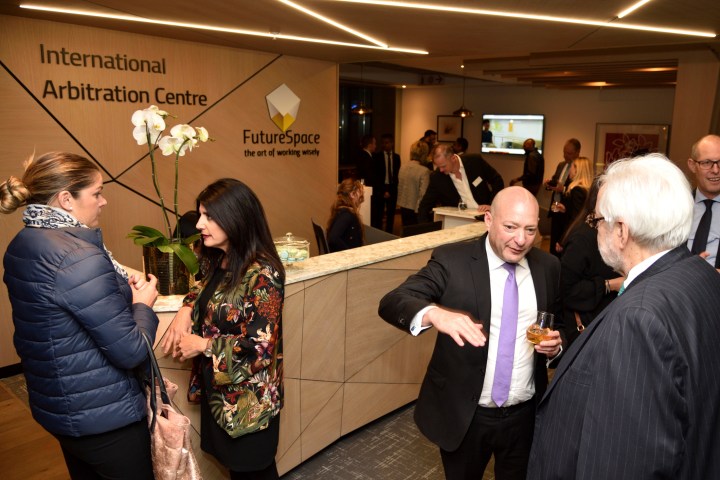
South Africa is experiencing a troubling lack of prosecutions of commercial crimes in both the public and the private sector, Judge Dennis Davis lamented at the launch of a new arbitration centre last week.
This absence of accountability in the judicial system, Davis said, is a result of the dearth of highly skilled local prosecutors who are willing and able to take on long and arduous white collar cases — and appropriate spaces for them to operate. It’s creating an ever widening gap in the country’s legal system: a loophole for the corrupt.
Judge Davis was speaking at the launch of the International Arbitration Centre at the FutureSpace Offices in Sandton, along with Investec Group’s Chief Executive Officer Stephen Koseff and High Court Judge Sharise Weiner; with author and former talk show host Redi Tlhabi moderating.
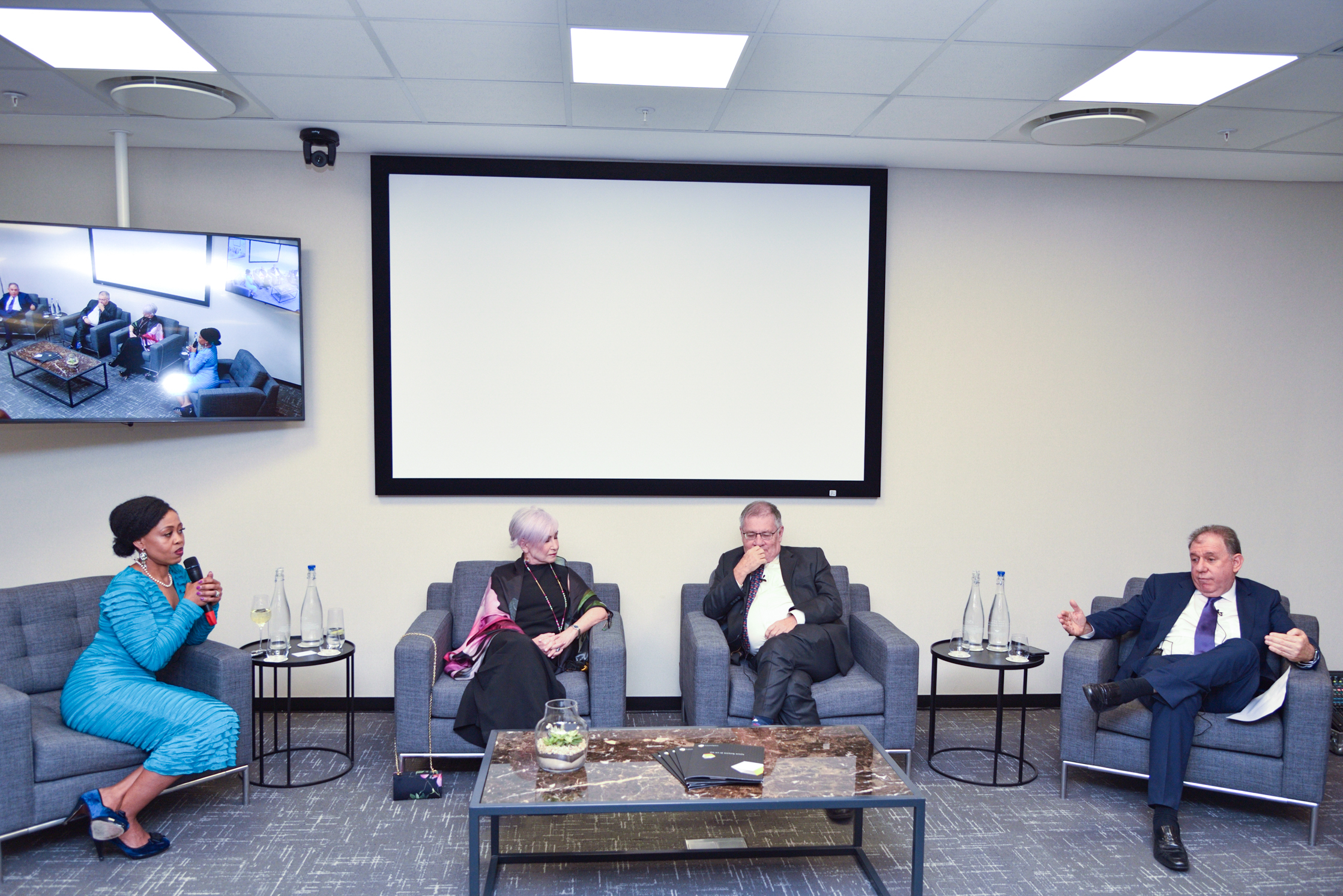
Judge Dennis Davis, High Court Judge Sharise Weiner and Investec CEO Stephen Koseff in discussion with moderator Redi Tlabi at the launch of FutureSpace’s International Arbitration Centre.
The centre is intended to provide a much needed solution to the commercial crimes prosecution conundrum. By providing independent, quality and neutral arbitration facilities for the global business community, the FutureSpace International Arbitration Centre (FIAC) intends to help close the commercial crime prosecution gap.
Part of the panel discussion at the centre’s launch event delved into the importance of an independent judiciary; and of understanding the legal processes of the commissions that have been set up to investigate so-called state capture, for example.
The panel’s legal stalwarts provided insight into the the challenges facing the judiciary as a result of a fractured liberation party captured by public interests, paired with the influence of greedy, corrupting private entities like Steinhoff and Trillian.
Together, these factors have maneuvered the South African economy into a seriously tenuous position. But partnerships engaging in positive, practical solutions, like the establishment of the FIAC by Investec and innovator Giant Leap, go a long way in counteracting these trends. Providing “quality, neutral arbitration facilities” to local and international businesses seeking to contribute to the national fiscus help solve some of the country’s costliest litigation snags.
The FIAC caters for arbitration, meditation, conferencing and training. Its facilities are intended to assist businesses resolve their challenges in amicable and constructive ways.
Its innovative spaces provide cutting edge technological solutions, creating the sense that every aspect and necessary function has been taken into consideration.
In a world of crippling labour disputes and regulation holdups, they are bound to provide the ultimate centre for dispute resolution.
And as a joint venture between Giant Leap and Investec Property, the FIAC is situated in the heart of “Johannesburg’s premier business and financial centre,” just across from the Gautrain, offering easy access to the best routes from hotels and the airport.
For Investec CEO Stephen Koseff, it has made a lot of business sense to invest in Johannesburg’s economic centre, Sandton.
“One has to take risks to make money, but also to solve the country’s often crippling challenges in business disputes,” said Koseff.
This solution is tailored for clients and customers alike, providing ways and means to ease those often intractable disputes, foster engagement and provide a problem-solving environment.
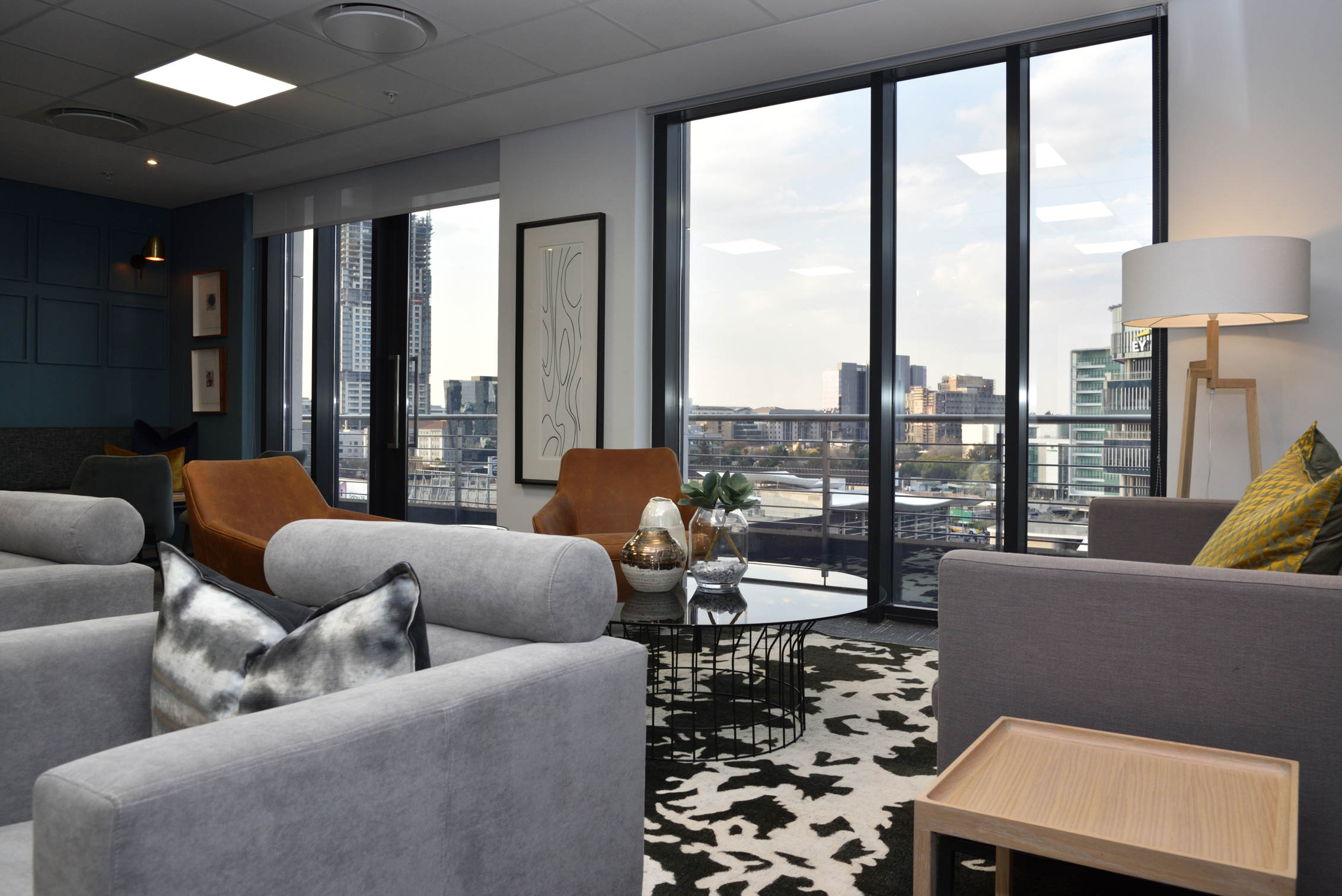
The FIAC is modern, professional and comfortable, providing a safe space for the most sensitive of discussions.
Comprising various arbitration rooms, FutureSpace IAC provides clients the use of rooms of varying sizes, with state of the art video conferencing facilities and conference phones, projectors and monitors. Its founders understand the needs of modern businesses operating in our ever-changing, fast-paced world; and knew instinctively that they would need to not only stay abreast of these changes, but keep ahead of the curve.
In the pursuit of restorative justice, for example — like the Life Esidimeni tragedy or the Marikana Massacre — facilities like these would go a long way in meeting the needs of both lawmakers and citizens seeking safe, secure and easy-to-access facilities to conduct sensitive hearings.
The FIAC’s High Court-style arbitration rooms are suitable for arbitration, mediation, depositions, high court cases, conferences or high level meetings
of various sizes.
The rooms can be re-configured according to specific needs, from 21-seaters to a 43-seater if required, with breakaway 12-seater boardrooms and a judge/arbitrator retiring room.
In a country fraught with regular and oftentimes divisive labour disputes, practical solutions in the form of suitable facilities are vital to helping find a resolution.
Whether it involves a sensitive case of sexual harassment or a group demand for higher wages, businesses should be able to focus on the issues that matter most, without having to worry about the where and how. DM

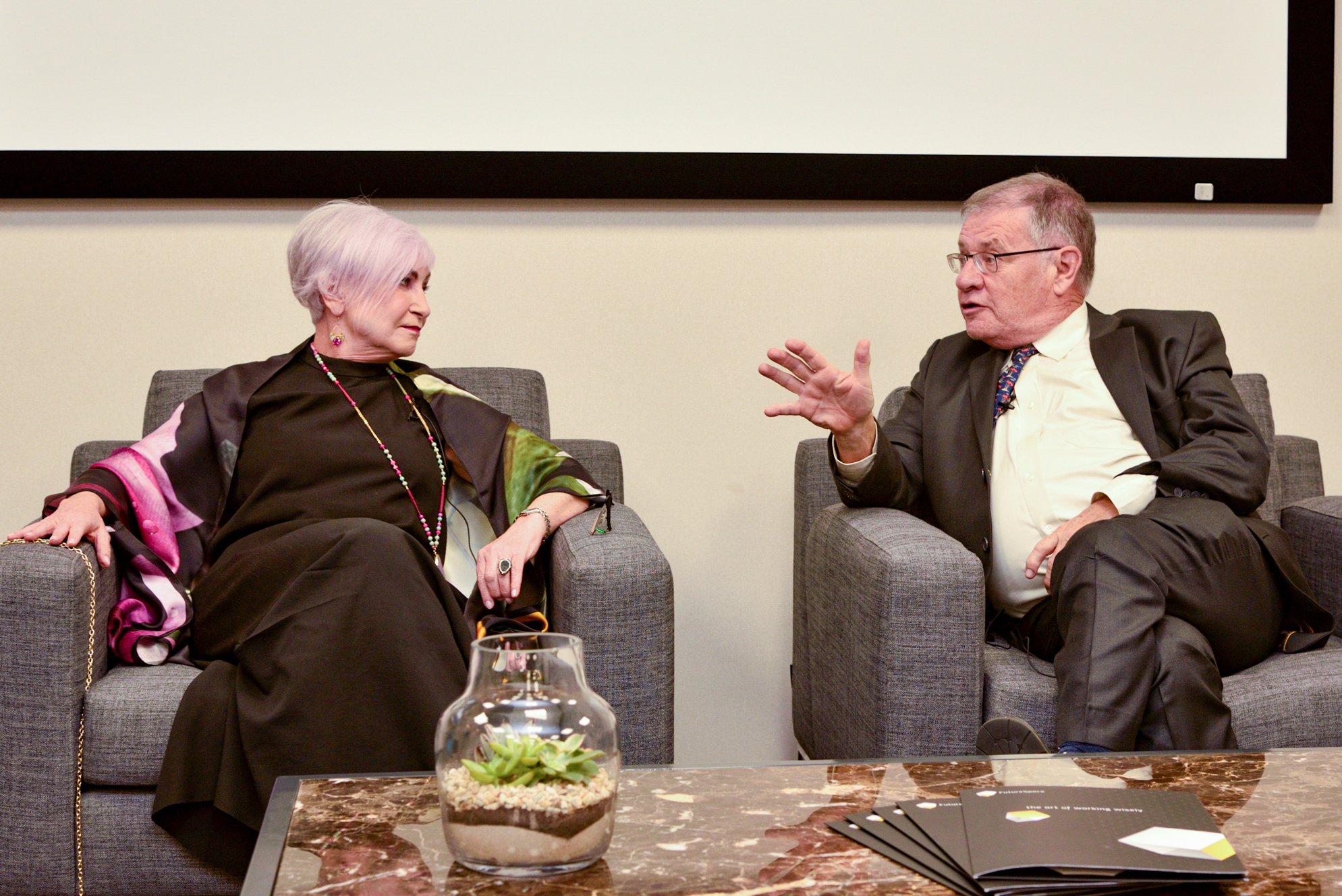
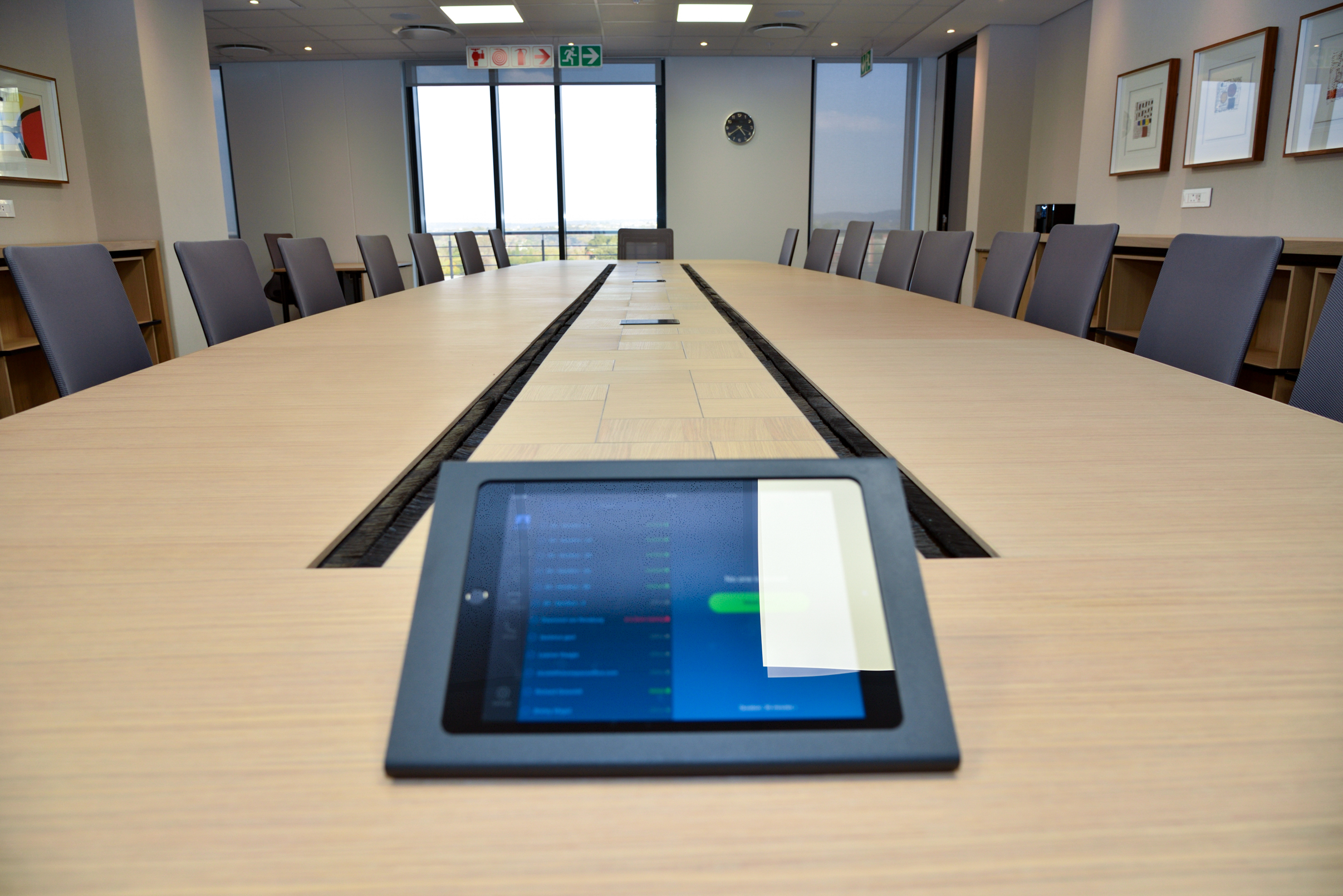






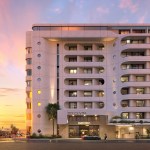










 Become an Insider
Become an Insider